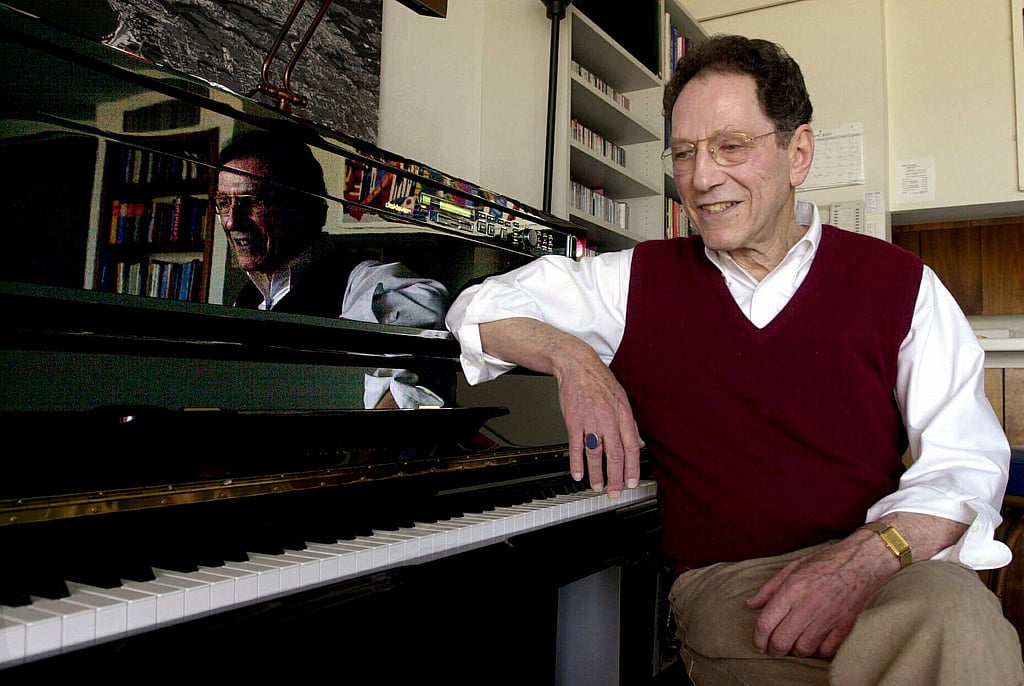Tom Lehrer, satirical songwriting legend and Math professor, dies at 97
Though his musical career was brief, Lehrer left a lasting impression

Tom Lehrer, the noted song satirist whose sharp, humourous takes on politics, religion, and social conventions made him a cult figure in the 1950s and ’60s, has died at the age of 97.
His longtime friend David Herder confirmed that Lehrer passed away on Saturday at his home in Cambridge, Massachusetts. A cause of death was not specified.
Lehrer was a Harvard-educated mathematician who began writing songs while still a student. Known for his dry wit and clever wordplay, he released a string of memorable songs including “Poisoning Pigeons in the Park,” “The Old Dope Peddler,” “Be Prepared,” and “The Vatican Rag,” in which he humorously critiqued religious rituals.
Though his musical career was brief, Lehrer left a lasting impression. He stepped away from the public spotlight in the 1970s to continue teaching mathematics, later joining the faculty at the University of California, Santa Cruz. In a surprising move in 2020, he released all of his lyrics into the public domain, allowing anyone to use them freely.
Lehrer is remembered for blending intelligence with humor, and for a body of work that continues to resonate with listeners today.
Accompanying himself on piano, he performed the songs in a colourful style reminiscent of such musical heroes as Gilbert and Sullivan and Stephen Sondheim, the latter a lifelong friend. Lehrer was often likened to such contemporaries as Allen Sherman and Stan Freberg for his comic riffs on culture and politics and he was cited by Randy Newman and “Weird Al” Yankovic among others as an influence.
He mocked the forms of music he didn’t like (modern folk songs, rock ‘n’ roll and modern jazz), laughed at the threat of nuclear annihilation and denounced discrimination.
But he attacked in such an erudite, even polite, manner that almost no one objected.
“Tom Lehrer is the most brilliant song satirist ever recorded,” musicologist Barry Hansen once said. Hansen co-produced the 2000 boxed set of Lehrer’s songs, “The Remains of Tom Lehrer,” and had featured Lehrer’s music for decades on his syndicated “Dr. Demento” radio show.
Lehrer’s body of work was actually quite small, amounting to about three dozen songs.
“When I got a funny idea for a song, I wrote it. And if I didn’t, I didn’t,” Lehrer told The Associated Press in 2000 during a rare interview. “I wasn’t like a real writer who would sit down and put a piece of paper in the typewriter. And when I quit writing, I just quit. ... It wasn’t like I had writer’s block.”
He’d gotten into performing accidentally when he began to compose songs in the early 1950s to amuse his friends. Soon he was performing them at coffeehouses around Cambridge, while he remained at Harvard to teach and obtain a master’s degree in math.
He also wrote songs for the 1970s educational children’s show “The Electric Company.” He told AP in 2000 that hearing from people who had benefited from them gave him far more satisfaction than praise for any of his satirical works.
His songs were revived in the 1980 musical revue “Tomfoolery” and he made a rare public appearance in London in 1998 at a celebration honoring that musical’s producer, Cameron Mackintosh.
Lehrer was born in 1928, in New York City, the son of a successful necktie designer. He recalled an idyllic childhood on Manhattan’s Upper West Side that included attending Broadway shows with his family and walking through Central Park day or night.
After skipping two grades in school, he entered Harvard at 15 and, after receiving his master’s degree, he spent several years unsuccessfully pursuing a doctorate.
“I spent many, many years satisfying all the requirements, as many years as possible, and I started on the thesis,” he once said. “But I just wanted to be a grad student, it’s a wonderful life. That’s what I wanted to be, and unfortunately, you can’t be a Ph.D. and a grad student at the same time.”
He began to teach part-time at Santa Cruz in the 1970s, mainly to escape the harsh New England winters.
From time to time, he acknowledged, a student would enroll in one of his classes based on knowledge of his songs.
“But it’s a real math class,” he said at the time. “I don’t do any funny theorems. So those people go away pretty quickly.”
Sign up for the Daily Briefing
Get the latest news and updates straight to your inbox
Network Links
GN StoreDownload our app
© Al Nisr Publishing LLC 2026. All rights reserved.